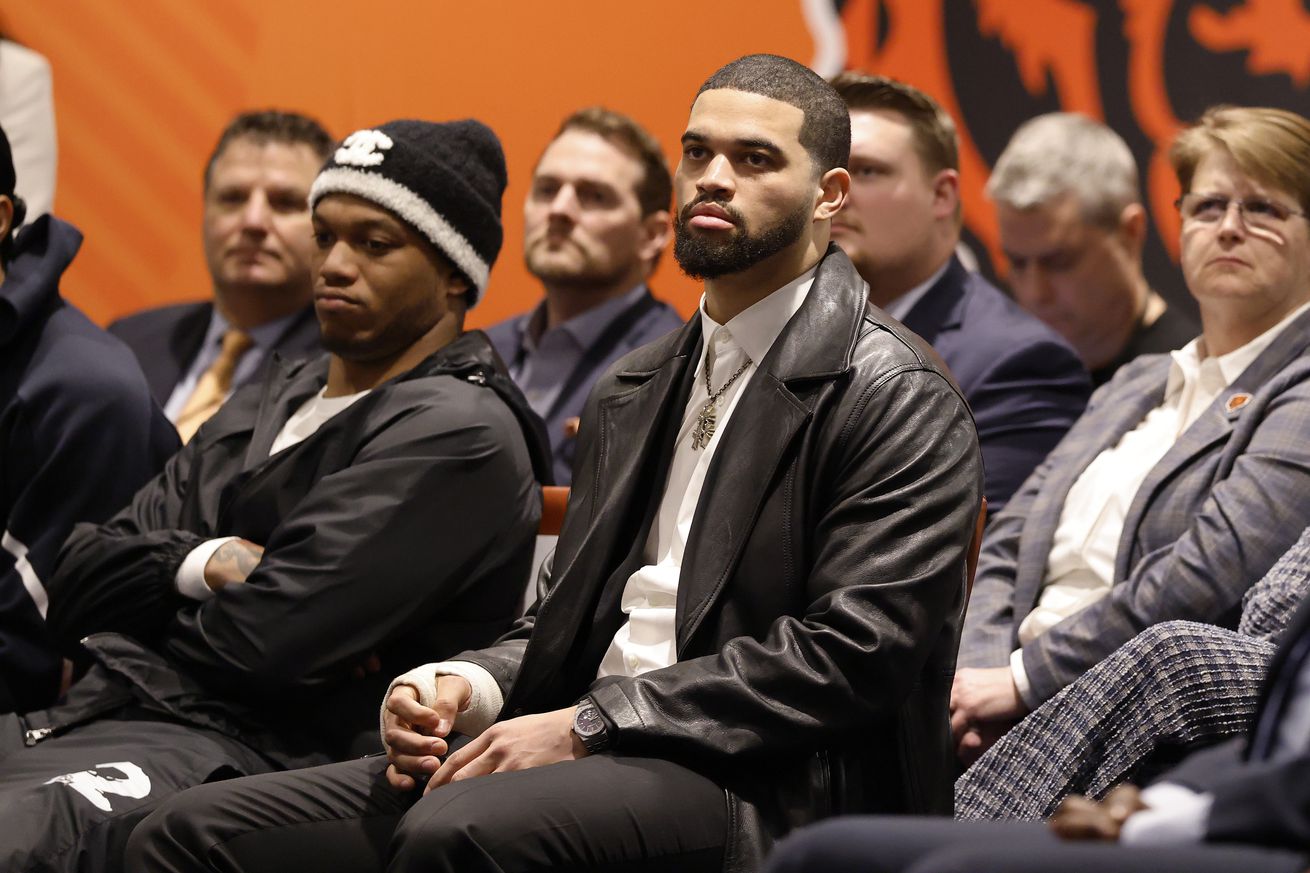
The Bears have attempted a lot of things over the years in trying to fight their way back to football relevance. In hiring Ben Johnson, they might have made a major step in the right direction.
I tend to be skeptical about many things, and I have certainly been skeptical of the work Ryan Poles has done while assembling a 15-36 record as the general manager of the Chicago Bears. Yet as I listened to Ben Johnson’s press conference, I kept repeating one word to myself.
Finally.
What was striking about the press conference was not necessarily what Ben Johnson said aloud, but rather how he said things and what he steadfastly did not say at all.
The “leader of men” moniker is ridiculous and overused, but it is worth noting that Kevin Warren and Ryan Poles clearly place a premium on empathizing with players, and Ben Johnson clearly spoke with emotion and forethought when discussing the players he worked with on the Detroit Lions. His address to George McCaskey about being willing to provide the “resources” necessary for success will likely do little to kill the tired narrative that the McCaskey’s are cheap, but it’s obvious that Johnson himself appreciates the commitment of those resources and the discussions he has had with Bears leadership. However, while Johnson praised Chicago as a special city (and as a place he wanted to raise his family), he did not belabor the history of the franchise. He did not talk about traditions. He let the past stay in the past.
Finally.
Johnson repeatedly praised the roster, and his phrasing mentioned that it was loaded with talent–not that it was ready to compete, but instead that there was talent present. More importantly? He mentioned that he had already addressed with Ryan Poles the need for a plan to address the offensive line. Despite the pressure from reporters and other narratives to make it all about the quarterback, he addressed the #1 overall pick directly, saying, “Caleb, I’m excited to work with you, but it’s going to take more than just you.”
Finally.
Instead of trying to draft acquire a quarterback and think the offensive problems will be magically solved, Johnson directly addressed the need for a roster and a coaching staff to support the quarterback. This is novel compared to the approach tried for Cutler, Glennon, Trubisky, and Fields.
Finally.
Even when discussing his own offense, instead of resting on his past successes he talked about “ripping this thing down to the studs” and building a new offense from the ground up built around Caleb Williams and the players Chicago already had available. He mentioned clearly that his offense was “not going to look like it did in Detroit.” The fact that he addressed the need to tailor an offense to the players seems obvious, but it is something that has eluded Chicago offensive minds for far too long.
Ryan Poles claimed that he wanted to break the cycle of failure for quarterbacks in Chicago, and that he wanted to take back the North. Johnson? He wants to challenge players to be the best versions of themselves and to hold them accountable. He wants to do the hard work and he wants to build a modern team that looks forward instead of to the past.
A lot could still go wrong, but at least a few things seem to be headed in the right direction.
Finally.
